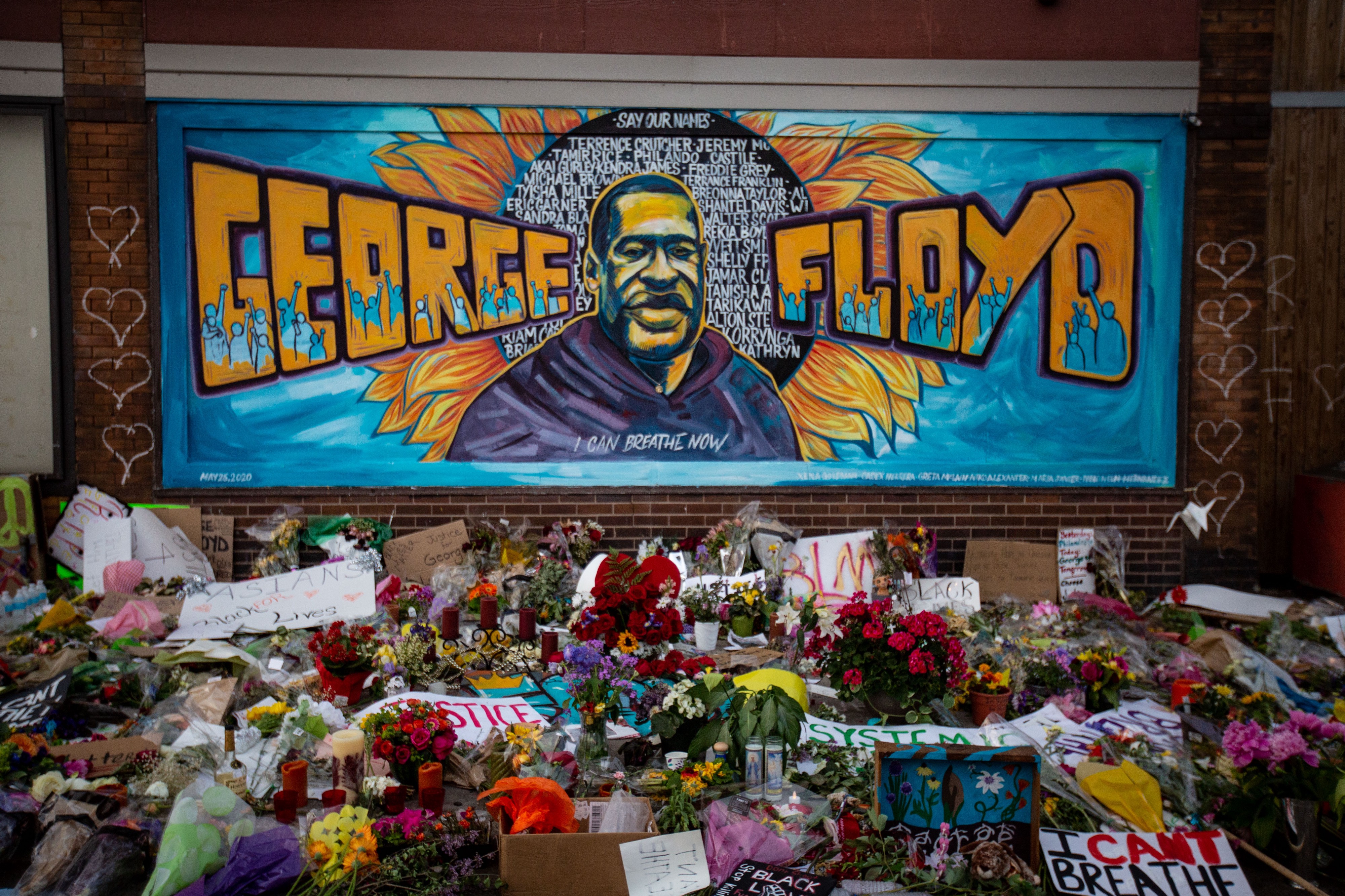Former Minneapolis police officer pleads guilty to manslaughter in George Floyd’s death
A former police officer of Minneapolis, in the US state of Minnesota, pleaded guilty to manslaughter allegedly in the death of George Floyd.
Chauvin was convicted of second-degree unintentional murder, third-degree murder, and second-degree manslaughter for pressing his knee against Floyd’s neck for about 9 1/2 minutes as the Black man said he couldn’t breathe

Former Minneapolis police Officer Derek Chauvin learns his sentence on Friday for murder in George Floyd’s death, closing a chapter in a case that sparked global outrage and reckoning on racial disparities in America.
Chauvin, 45, faces decades in prison, with several legal experts predicting a sentence of 20 to 25 years. Though Chauvin is widely expected to appeal, he also still faces trial on federal civil rights charges, along with three other fired officers who have yet to have their state trials.
Advertisement
The concrete barricades, razor wire and National Guard patrols that shrouded the county courthouse for Chauvin’s three-week trial are gone, and so is most of the tension in the city as it awaited a verdict in April. Still, there’s a recognition that Chauvin’s sentencing will be another major step forward for a city that has been on edge since Floyd’s death on May 25, 2020.
Advertisement
“Between the incident, the video, the riots, the trial — this is the pinnacle of it,” Mike Brandt, a local defense attorney who has closely followed Chauvin’s case, said. “The verdict was huge too, but this is where the justice comes down.”
Chauvin was convicted of second-degree unintentional murder, third-degree murder, and second-degree manslaughter for pressing his knee against Floyd’s neck for about 9 1/2 minutes as the Black man said he couldn’t breathe and went limp. Bystander video of Floyd’s arrest for suspicion of passing a counterfeit $20 bill prompted protests around the world and a nationwide reckoning on race and police brutality.
Under Minnesota statutes, Chauvin will be sentenced only on the most serious charge, which has a maximum sentence of 40 years. But case law dictates that a 30-year sentence would be the practical maximum sentence Judge Peter Cahill could impose without risk of being overturned on appeal.
Prosecutors asked for 30 years, saying Chauvin’s actions were egregious and “shocked the nation’s conscience.” Defense attorney Eric Nelson requested probation, saying Chauvin was the product of a “broken” system and “believed he was doing his job.”
Cahill has already found that aggravating factors in Floyd’s death warrant going higher than the 12 1/2-year sentences recommended by the state’s sentencing guidelines. The judge found Chauvin abused his position of authority, treated Floyd with particular cruelty, and that the crime was seen by several children. He also wrote that Chauvin knew the restraint of Floyd was dangerous.
“The prolonged use of this technique was particularly egregious in that George Floyd made it clear he was unable to breathe and expressed the view that he was dying as a result of the officers’ restraint,” Cahill wrote last month.
The three other officers are also scheduled for trial in March on state charges of aiding and abetting both murder and manslaughter.
Advertisement